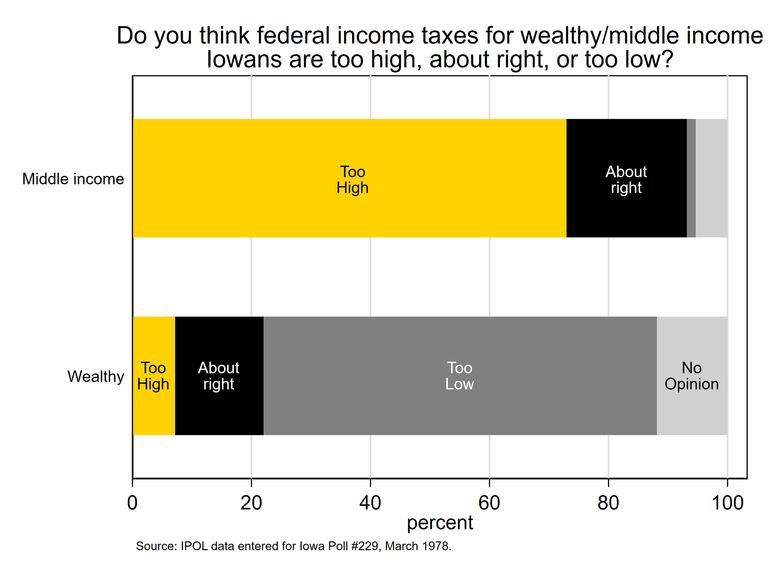Data collected from a 1978 Iowa Poll shows that Iowans generally believed taxes were too high for the middle class, and too low for the wealthy. These data come from Iowa Poll #229, a random sample survey of 600 Iowans from March 1978, which has been restored as part of a larger IPOL project to recover lost data from past Iowa Polls. These questions ask specifically, “Do you think federal income taxes for middle income Iowans are too high, about right, or too low?” and “Do you think federal income taxes for wealthy Iowans are too high, about right, or too low?”

Concerning the middle class, 73% of respondents answered that they thought taxes were “too high”, making this the most common answer by a large margin. 20% of respondents said taxes for this group were “about right”, while only 1.50% of respondents thought taxes for middle income Iowans were too low. 5% of respondents were unsure. Respondents’ opinions were reversed regarding taxes for wealthy Iowans. Only 7% of respondents thought taxes were too high for wealthy Iowans, 15% thought they were about right, and most respondents (66%) agreed that the wealthy were not taxed enough. Lastly, 12% of respondents were unsure about this question.
Iowa Poll #229, conducted by the Des Moines Register, was administered to a random sample of Iowans in March 1978. In addition to the questions about taxes, the survey asked respondents their opinions on a wide variety of topics, including the creation of an independent Palestinian state, the effects of high inflation, LGBTQ+ individuals holding different positions, and entertainment consumption. Understanding Iowans’ past opinions on these topics can help us understand how perspectives have changed and what ideas have remained popular. IPOL has also been working with UI Libraries and the Des Moines Register to restore data from dozens of Iowa Polls from the 1960s to early 1980s. More information about the project can be found here. We are working to release a full report on our findings as we analyze additional questions.